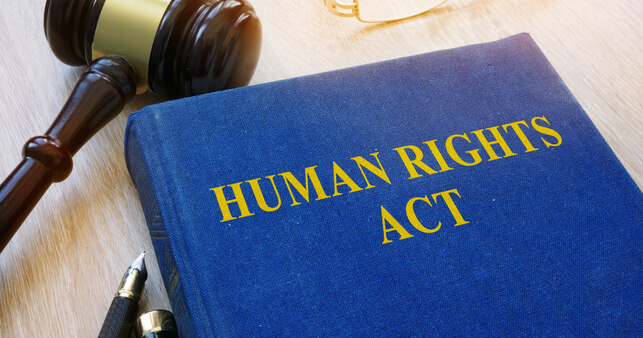
The Protected Disclosures Act 2000 was replaced by the Protected Disclosures (Protection of Whistleblowers) Act 2022 on 1 July 2022. The Protected Disclosures (Protection of Whistleblowers) Act 2022 continues the 2000 Act’s purpose, which is to facilitate the disclosure and investigation of serious wrongdoing in the workplace, and to provide protection for employees and other workers who report concerns.
This Act provides protection for these employees from criminal and legal retribution, and outlines the internal procedure to be followed when investigating the matter. Employees who report information or activities that are deemed illegal or incorrect in a workplace are often referred to as ‘whistle-blowers’. The Act applies to the public and private sector across New Zealand.
What is defined as serious wrongdoing?
Serious wrongdoing includes any unlawful activity, gross negligence by public officials, criminal offences or conduct that could potentially pose a risk to the public on a broader scale. It should not be confused with serious misconduct, which only affects an individual or group of people in the organisation.
The Act describes the following as serious wrongdoing:
unlawful, corrupt or irregular use of public money or resources
conduct that poses a serious risk to public health, safety and the environment
conduct that increases the risk of unauthorized intervention from a third-party to encourage a lawsuit
any kind of criminal offence
gross mismanagement and negligence from public officials
Who can make protected disclosures?
The Act defines ‘employees’ as:
current employees who receive a regular wage or salary
former employees of the organisation
individual contractors who work for the organisation
homeworkers
secondary parties involved in managing the organisation
volunteers who work for the organisation
For the disclosure to be protected, the following requirements under the Act must be met:
the information must be about serious wrongdoing in the workplace
the employee must have a good reason to believe the information is true or likely to be true
the employee wants the serious wrongdoing to be investigated and is willing to cooperate
If the employee knows the allegations are false, acts in bad faith or the information is protected by legal professional privilege; the disclosure will not be protected.
Writing a protected disclosure policy
Public organisations are required by law to have their own internal procedures.
Private organisations are not legally required to have a protected disclosure policy. Although, having a policy does show transparency within the organisation and may give employees the comfort of knowing they can express their concerns without fear of retribution.
How to submit protected disclosures
Employees should follow the internal procedure in the company handbook to report any cases of serious wrongdoing.
If the organisation does not have a protected disclosure policy and the person that manages the disclosures is the one being accused of serious wrongdoing, an employee can disclose the information to the head of the organisation.
If there is good reason to believe the employer or disclosure manager is involved in serious wrongdoing, the employee may report to the appropriate authorities to have the matter investigated. These authorities include the Ombudsman, Commissioner of Police, Director of the Serious Fraud Office, Solicitor-General or the head of every public sector agency.
What protection does the Act offer?
Many employees are afraid to disclose information about serious wrongdoing because they are afraid of losing their job, being sued by the company or discriminated against. The Act clearly states that no civil, criminal or disciplinary action can be taken against whistle blowers or potential whistle blowers for making a protected disclosure.
If an employee does face any form of retaliation from the organisation, they can submit a personal grievance claim under the Employment Relations Act. Employers who discriminate or mistreat employees that have disclosed information about serious wrongdoing could face serious legal consequences.
How does the Act protect an employee’s privacy?
After making a protected disclosure, an employee’s personal information is kept confidential according to the terms of the Act unless the employee consents to the disclosure.
There are exceptions to the confidentiality rule in the Act, which means certain information can be used if it:
helps the investigation move forward and uncover the truth behind the allegations
reduces the risk of personal injury or harm to public health, safety and the environment
avoids potential bias and complies with the rules of natural justice
Changes to The Protected Disclosures Act 2000
The 2022 Act makes changes to address identified issues and improvements.
The key changes in the 2022 Act are:
extending the definition of serious wrongdoing to cover private sector use of public funds and authority and to cover behaviour that is a serious risk to the health and safety of any individual
allowing people to report serious wrongdoing directly to an appropriate authority at any time, while clarifying the ability of the appropriate authority to decline or refer the disclosure
strengthening protections for disclosers by specifying what a receiver of a disclosure should do
clarifying internal procedure requirements for public sector organisations and requiring them to state how they will provide support to disclosers
clarifying the potential forms of adverse conduct disclosers may face.
Organisations, both public and private sector, have responsibilities under the Act as receivers of protected disclosures, including sometimes as appropriate authorities. Public sector organisations must have appropriate internal procedures for protected disclosures and must publicise these procedures widely.
For advice on how to comply with the Protect Disclosures Act in your workplace, contact Employsure on 0800 568 012.









